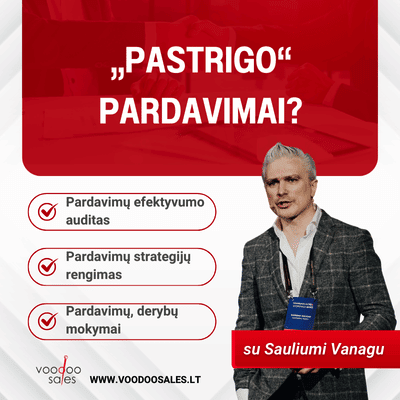JOB INTERVIEW: HOW TO PREPARE FOR A JOB INTERVIEW?
1 year ago
A job interview is like an exam that requires preparation. There are several steps that are important to consider in order to properly prepare for a job interview. Often, people underestimate the importance of a job interview and think that simply talking about themselves on the spot is enough, as the employer can see everything in their resume. Unfortunately, this is a misconception. I believe you will agree with me that a job interview allows the creation of a first impression about a person, and it can be either good or bad depending on how you prepare for it. A job interview is not only about discussing a person's experiences but also about assessing their communication skills and understanding their goals and desires. In other words, a job interview is about establishing initial communication between the employer and the potential employee. Therefore, for a job interview to be successful, it is important to prepare properly. DO YOUR RESEARCH ABOUT THE COMPANY The first step in preparing for a job interview is to gather detailed information about the company. It is important to know not only the company's name but also its position in the market. You should at least have a basic understanding of the products/services the company offers because you may be asked questions related to the company's products during the job interview. It is also recommended to look into employee turnover, average salaries, the company's profitability, debts, and loans. Of course, it is essential to check for reviews from current or former employees, which often provide an initial impression of the company's internal culture, and values, as well as any shortcomings or advantages. You can check and write reviews here: https://en.lovejob.lt/reviews REVIEW YOUR CV ONCE AGAIN Carefully review your resume and be prepared to answer questions about your work experience. While the employer likely has seen your CV, during the job interview, candidates are often asked to elaborate on their work experience, detailing tasks, responsibilities, and challenges faced. If you have listed specific skills, such as analytical thinking, be ready to provide examples of how you've developed those qualities. UNDERSTAND THE JOB POSITION YOU'RE APPLYING FOR Don't be surprised if the job title mentioned in the job posting doesn't exactly match the nature of the work and responsibilities outlined in the job description. It's common for employers to expect one person to handle tasks that may seem to require the work of multiple individuals. To avoid misunderstanding and to know what your responsibilities will be, analyze the job description and requirements thoroughly. Prepare questions to clearly understand the employer's expectations. If you don't meet certain requirements but still want the job and are invited for an interview, consider how you could argue your suitability for the position. It might be worth mentioning additional skills that weren't previously included in your resume. CONSIDER YOUR ANSWERS TO THE MOST COMMONLY ASKED INTERVIEW QUESTIONS While job interviews vary from company to company, some interview questions are predictable and can be prepared for in advance. In some companies or when applying for certain positions, candidates may encounter not only questions but also various types of tests. There are several common questions that are frequently asked during job interviews. Most commonly asked interview questions: 1. Tell me about yourself and your work experience. The interview often begins with this question or request. It's aimed at hearing how you present yourself, and your ability to deliver relevant information clearly and succinctly to the employer. Briefly discuss your education, recent years of experience, notable achievements, and current activities. 2. What are your strengths? When answering, mention several positive personality traits and behaviors and provide examples of how you apply them in the workplace to complete various tasks. Try to argue in a way that demonstrates to the employer that you are an excellent candidate. For instance, a response could be: "I am communicative, which allows me to quickly build rapport with clients." 3. What are your weaknesses? Don't hesitate to identify your weaker traits. An interview is not solely about your achievements and merits. It's better to acknowledge your weaknesses than claim you have none. It's important to mention a weakness that affects your productivity, for example: "I devote too much time to details, sometimes causing delays in other tasks." 4. What are your financial expectations? One of the main interview questions is about salary. If your financial expectation is higher than what's indicated in the job posting, your goal should be to provide the employer with solid arguments about the value you can bring to the company and how it will impact the company's growth and turnover. To ensure your desired salary aligns with reality, research prevailing salaries in the market for the position you're applying for and evaluate the value of your skills in advance. Don't dismiss the possibility of negotiating salary and seek a compromise. 5. What motivates you to work? Certainly, motivation isn't solely about salary for everyone. Motivational factors can be diverse. In this case, the employer expects an answer related to the job role or the company's vision. For instance, you could say that your motivation is to improve and become the best specialist in your field. 6. How do you react to stress and changes at work? Employers want to hire emotionally mature candidates who know how to manage stressful situations at work, as problems often affect work results. When answering this question, you can explain that you can remain calm, aren't afraid to ask for help, and can adapt to changes. 7. What are your future goals? This question is actually linked to the present. The employer aims to find out whether you see yourself working in the company in the long run. To answer this question, you should assess your ambitions and career plans for the future. 8. Why do you want to work in this company? The best way to prepare for this question is to research the company's activities, values, culture, and goals. Be ready to provide reasons why this company appeals to you and why you would choose it. Perhaps the company works with products that interest you, and the values the company nurtures align with yours. We can't guarantee that all the above-mentioned commonly asked interview questions will be used in your interview, but surely some might. Remember that the interview shouldn't be superficial, so don't hesitate to reveal your personality. The interview should be based on openness, trust, and building an emotional connection. Practice your answers to align with job requirements and company values, and approach the interview with a positive and enthusiastic attitude. Good luck!

